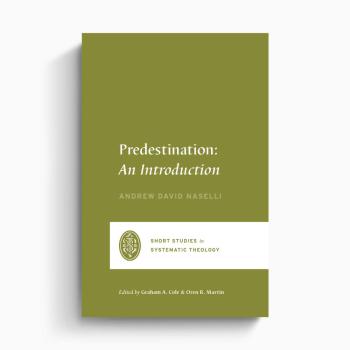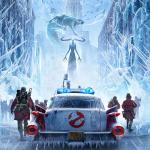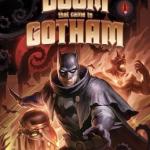Review of The Deerslayer by James Fenimore Cooper
Five white people are holed up in a floating cabin in the middle of a lake and surrounded on all sides by woods infested with hostile Huron Indians bent on murder, rape, and pillage. A tense game of cat and mouse ensues as intricate as chess: maneuvering for advantage, night raids on campsites, kidnappings, negotiations, ransom, and, yes, scalping.
This is The Deerslayer (1841), a classic of 19th Century American literature. Despite its description, it is as far as possible from a cowboys-versus-Indians story in which the white people are good and the Indians are bad. In fact, it is almost the opposite.
The story does feature two white men–Henry March and Tom Hutter–who have no compunction about killing Indians and selling their scalps for money. In a typical story of white American triumphalism, they would be the heroes and the plot would simply describe their victories. But the two are not the heroes of this story, their moral code is explicitly condemned by several other characters, and their efforts to defeat their Indian rivals are repeatedly thwarted. The author seems to include them only as a foil for the real hero.
The hero is the eponymous Deerslayer, a white man raised by Delaware Indians and thus a dual citizen of both Indian and white civilization. Deerslayer–also known by his given name, Nathaniel Bumppo, and by the name he earns in the course of this adventure, Hawkeye–is the hero of a quintet of books all written by Cooper between 1827 and 1841. This, the last to be written and published, is the first in the stories’ chronology (George Lucas didn’t invent the idea of a prequel, it seems). The character is probably most familiar to us from Daniel Day-Lewis’ portrayal of him in the 1992 film adaptation of Last of the Mohicans, the second book in the series.
Deerslayer (or Hawkeye) is the archetypal young hero, set down in the woods of colonial America. He is brave, loyal, honest, wise, simple, endearing, and an absolute crack shot with the long rifle. He loves nature, kills animals only when he has need of food or clothing, and kills men only in self-defense. As a hybrid of white and Indian culture, his biography is uniquely American; but his character is universal. Think Luke Skywalker or Frodo Baggins.
But Deerslayer as a mouthpiece for James Fenimore Cooper’s moral philosophy is another thing altogether, and he provides the primary moral contrast to the coarse racism of March and Hutter–but not, I think, an ultimately successful one. Deerslayer tells his companions that each race has its own “gifts,” and each should stick to them. Scalping is a “red gift” and Deerslayer therefore frowns on March’s and Hutter’s attempts to kill and scalp Indians for profit (the colonial governor having offered a bounty for them). He similarly refuses to take any scalps from the Indians whom he kills in self-defense.
Hawkeye argues that “Red gifts” also include bravery, physical prowess, superior survival skills, and knowledge of the forests and the land. “White gifts” include strategic reasoning, skill with the rifle, literacy, and, presumably, agriculture and settled civilization. As a man with white skin but Indian habits, he seems to possess almost all the gifts of both races–though he steadfastly insists he is white.
Hawkeye’s moral framework is at least superior to March’s and Hutter’s because he acknowledges the humanity of the Indians, will not murder them in cold blood, and respects their customs and habits. Even when the Indians demonstrate their superiority in battle, March and Hutter can never give them that kind of recognition. Cooper further honors Indians in his story by giving Deerslayer an Indian ally, Chingachgook of the Delaware tribe (a recurring character in most of The Leatherstocking Tales), who embodies all the virtues of the noble savage. Altogether, the portrayal of Indians in Cooper’s work is a remarkably enlightened one, for 1841.
But Deerslayer’s way of treating racial difference is obviously little more than stereotyping masquerading as tolerance. It may have been progressive for the 19th Century (or the 18th, when the story is set), but it ignores individuality and reduces culture to genes. In Cooper’s own day, the Indians of the “Five Civilized Tribes” adopted many of the “white gifts” that he wants to reserve for whites, while Deerslayer himself is an example of a white man who has successfully learned “red gifts.” This is proof that it is nurture, not nature, that bestows them–an obvious fact to which Deerslayer (or Cooper) seems oddly blind.
And there is the troubling fact that Deerslayer refuses to hold up the different races to the same moral standard. Deerslayer doesn’t condemn the Indians if they scalp or, he seems to imply, cheat, because that is their way of warfare; but white men must fight honorably, keep their word, and never scalp. Though Cooper (I am assuming Deerslayer is a mouthpiece for Cooper’s worldview) would deny it, this leads straight to pure moral relativism: how can you condemn any people for any act, no matter how abominable, if they are simply exercising their “gifts” according to their different natures?
This is the logical conclusion of Cooper’s religion, which is not Christianity, but Romanticism, of which The Deerslayer is a magnificent Scripture. Deerslayer repeatedly calls himself a Christian, which he thinks is a synonym for “white,” while his actual religion is something quite different. Deerslayer says at one point:
“It matters not whether the Father of All is called God, or Manitou, Deity or Great Spirit, he is none the less our common maker and master; nor does it count for much whether the souls of the just go to Paradise, or Happy Hunting Grounds, since He may send each his own way, as suits his own pleasure and wisdom.”
Romanticism is the worship of nature–both the earth surrounding us and the human nature we find within. In one passage, Deerslayer admires the scenery of the lake, and “felt a portion of that soothing of the spirit which is a common attendant of a scene so thoroughly pervaded by the holy cairn of nature.” Nature is holy and a source of spiritual peace. At other points Deerslayer (or the narrator) refer to nature as a “temple” and a “priest.” Later in the story, we read this:
“He loved the woods for their freshness, their sublime solitudes, their vastness, and the impress that they everywhere bore of the divine hand of their creator. He seldom moved through them, without pausing to dwell on some peculiar beauty that gave him pleasure, though seldom attempting to investigate the causes; and never did a day pass without his communing in spirit, and this, too, without the aid of forms or language, with the infinite source of all he saw, felt, and beheld.”
If you worship nature, you worship everything that exists. You have no grounds to judge anything wrong, because everything that exists is good. Deerslayer can’t condemn Indians for scalping and cheating because that’s their gift. Why not absolve March and Hutter of their greed and desire for conquest, which may as well be “white gifts” they are exercising? The answer is that the only thing “wrong” in romanticism is “civilization.” The story frowns on fancy dress, the settlements, British soldiers, and town life in preference to simplicity and life in the woods. March and Hutter are tainted to the extent that they are motivated by profit or status in town.
Of course, the animus against civilization has no real foundation, and Deerslayer has backed himself into a corner, but no other character calls him out on it because he was, for his day, the fashionably enlightened one. But Deerslayer’s answer to March and Hutter is ultimately unsatisfying because his own moral foundations are so shaky.
There is another way, shown by a secondary character in the book. Hetty Hutter, a dull-witted young white woman, agrees with Deerslayer that the Indians are human beings and should not be murdered for the money their scalps would bring. But she believes that because she is a Christian (a real one). At one point she takes a Bible, walks directly into the Indians’ camp, and preaches a sermon to them about turning the other cheek. The Indians hear her out and treat her with respect before ignoring her altogether. The other whites are aghast at her naïveté.
It is to Cooper’s credit that he developed a believable Christian character in the work and gives her a poignant end, but he cheats by making Hetty stupid, which in turn makes it too easy for him and his other characters to treat her politely while dismissing her ideas out of hand. It would have been more interesting to put Hetty’s ideas in the mouth of another warrior whom Deerslayer and the others were forced to contend with. But then again, God delights in using the weak and foolish of the world to humble the strong and the smart. Hetty, of course, is right. Deerslayer, one of the great characters of American literature, is the poorer for not seeing it.












